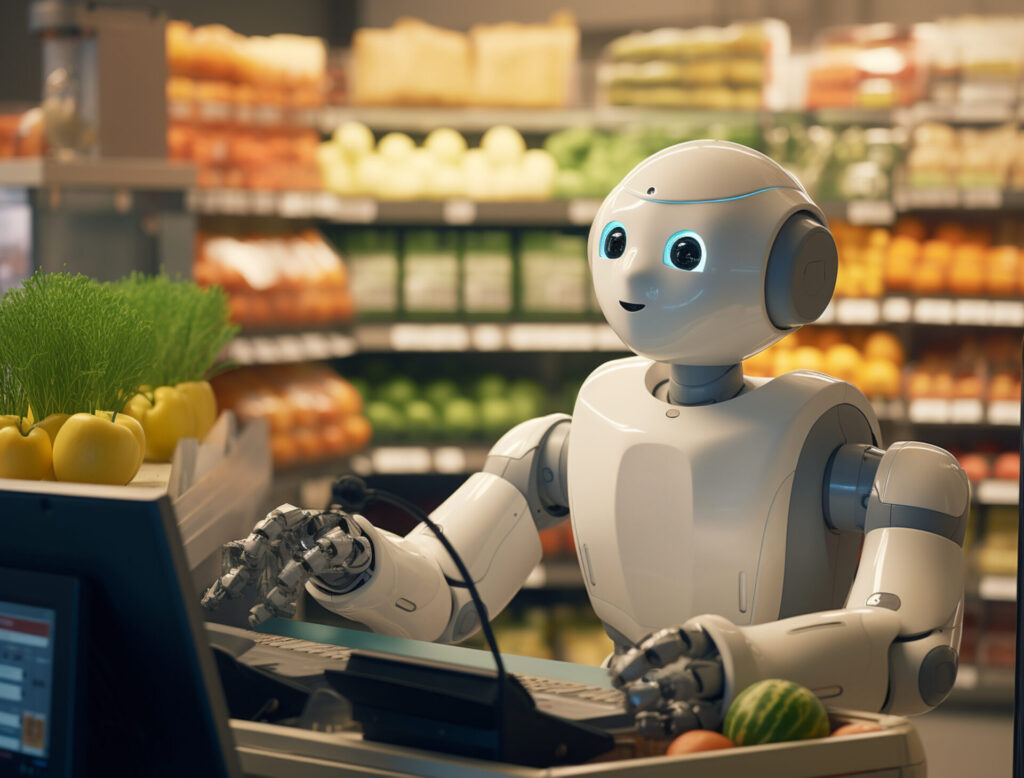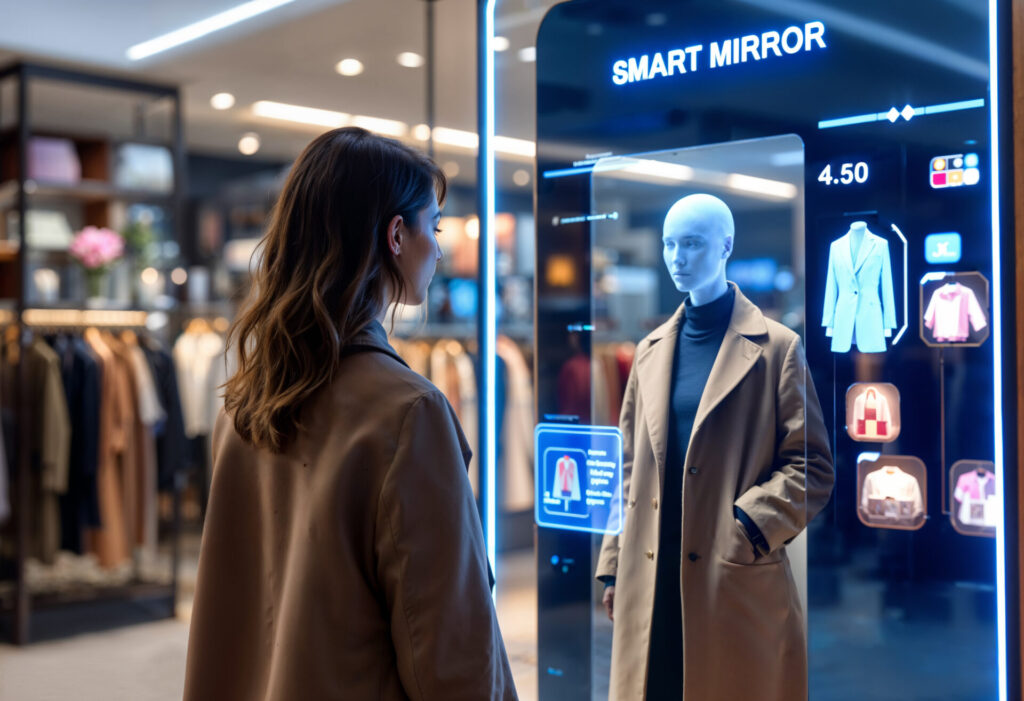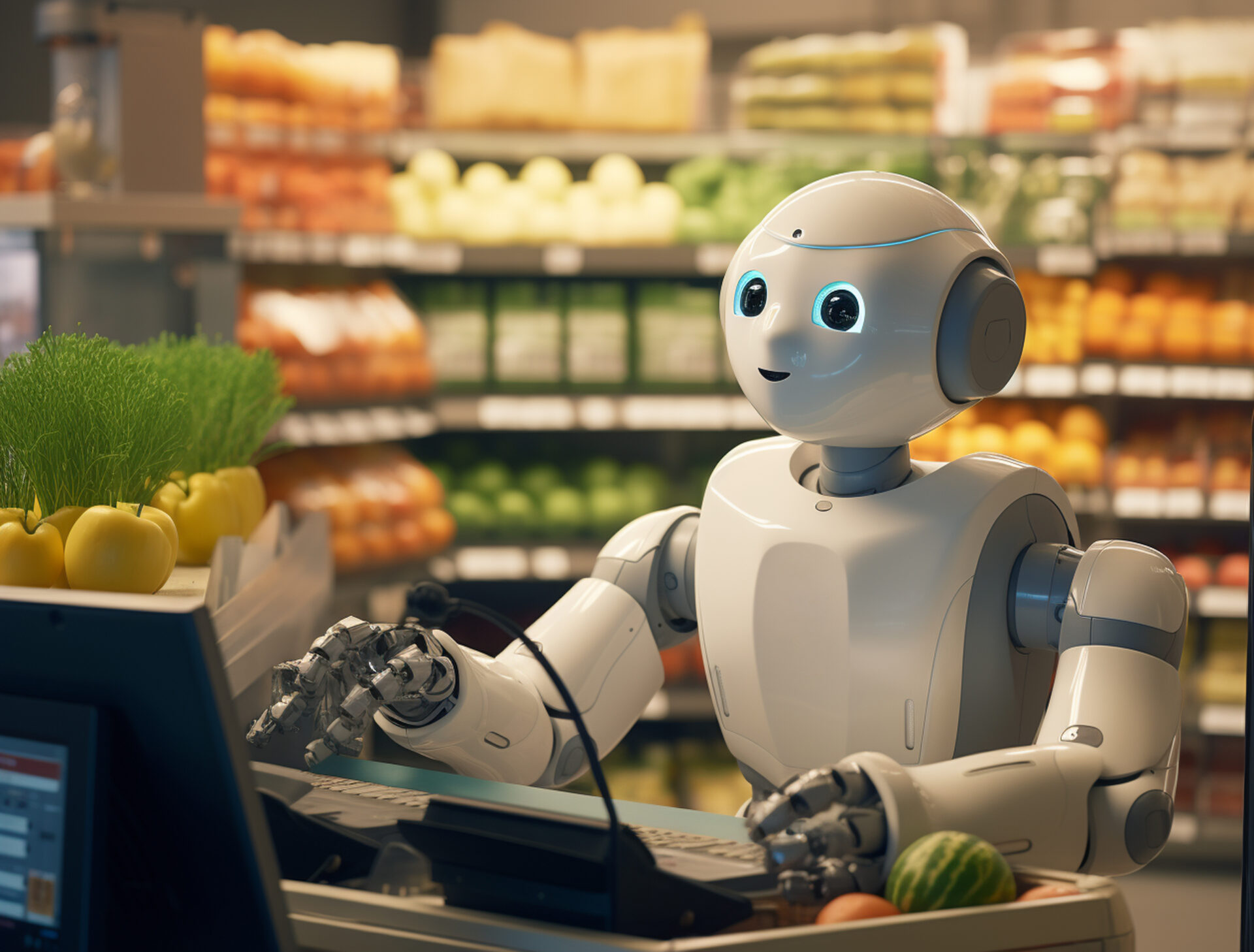
In today’s fast-paced digital world, artificial intelligence in retail is not just a buzzword—it’s a game-changer. From personalized recommendations to cashier-less checkouts, AI is reshaping how we shop, interact with brands, and make purchasing decisions. Imagine walking into a store that already knows what you like, suggests items based on your style, and checks you out without standing in line. That’s the power of AI in retail. Retailers who embrace this shift are not only improving their customer experience but also gaining a competitive edge. As consumer expectations rise, businesses must evolve— AI is at the heart of that transformation. In this blog, we’ll explore how artificial intelligence is reshaping retail, its real-world uses, and what it means for the future of shopping.
What Is AI in Retail?
Artificial intelligence in retail refers to the merging of intelligent machines and algorithms into retail systems to automate tasks, gain insights, and improve customer experience. It includes everything from using chatbots for instant support to analyzing significant datasets for better decision-making. AI tools mimic human intelligence to solve problems, predict trends, and personalize shopping journeys. This means retailers can understand their customers like never before. From dynamic pricing models to inventory automation, AI is changing how stores operate behind the scenes. As this technology continues to evolve, it’s becoming more accessible—even for small and mid-sized businesses. Ultimately, AI in retail is about creating intelligent, faster, and more efficient ways to serve consumers.
For more on this topic, check out our post on – How Artificial Intelligence is Transforming the World
How is AI Used in the Retail Industry?

In the retail industry, artificial intelligence is used to enhance customer service, improve operations, and boost profits. AI-powered tools help retailers predict what products will sell, when, and in what quantity—reducing overstock and stockouts. In customer service, AI chatbots handle common queries, provide product info, and assist with orders 24/7. Visual search tools and voice assistants make finding products easier, while recommendation engines suggest items based on user behavior. Retailers also use AI in fraud detection and supply chain optimization. In stores, smart shelves and cameras track customer activity to improve layout and experience. These applications make businesses more responsive and customer-focused than ever before.
Example:
Amazon uses predictive analytics and AI to manage its warehouses, optimize delivery routes, and offer real-time product suggestions to users.
Visual search tools, voice assistants, and AI chatbots make shopping more interactive and convenient. In physical stores, smart cameras track customer movements to improve layouts and product placement.
Benefits of AI in Retail
The benefits of artificial intelligence in retail are both immediate and long-term. First, it enables hyper-personalization—tailoring marketing and product suggestions to each shopper, increasing engagement and loyalty. AI also improves inventory control through predictive analytics, reducing waste and maximizing efficiency. With automation handling repetitive tasks, staff can focus on creative and strategic roles. AI systems can detect fraud patterns and unusual activities in real-time, adding a layer of security. Additionally, it speeds up decision-making by processing data faster and more accurately than humans. These advantages contribute to higher customer satisfaction and stronger business performance, making AI an invaluable asset in retail.
Real-world example:
Sephora uses AI-powered facial recognition and AR to help customers virtually try on makeup using its Virtual Artist tool, improving online conversions.
With automation, staff are freed from repetitive tasks and can focus on customer engagement and brand building. AI systems also help in real-time decision-making, which leads to improved customer satisfaction and stronger sales performance.
How Can AI Help with Shopping?
For customers, artificial intelligence in retail makes shopping smarter, faster, and more enjoyable. Online, AI recommends products based on your preferences, browsing behavior, and past purchases, creating a personalized experience. Chatbots provide quick answers, assist with product searches, and even help complete purchases. AI is powering virtual try-ons, smart mirrors, and voice-controlled kiosks that guide customers to the right product. Some stores offer seamless checkout experiences where you simply walk out with your items and AI Handles billing. These technologies save time, reduce friction, and make shopping more interactive. Whether online or offline, AI ensures a smoother journey from browsing to buying.
We’ve also published an internal post that explores- Grok 3 AI: How It Stands Out from Previous AI Models
What Are the Positive Effects of Artificial Intelligence in Retailing?
The positive impact of artificial intelligence in retail is reshaping the industry at every level. For customers, it means personalized experiences, faster service, and greater satisfaction. For businesses, AI improves accuracy, reduces costs, and drives intelligent decision-making. Retailers can predict demand, manage inventory better, and optimize pricing in real-time. Marketing becomes more targeted, ensuring campaigns reach the right people with the right message. AI also supports sustainability by minimizing waste through better forecasting. It even opens doors to innovation and new business models. By bridging data and customer experience, AI turns challenges into opportunities—fueling growth and transformation in retail.
🌐 Check out this in-depth article in Intel
The Future of AI in Retail
The future of artificial intelligence in retail holds limitless possibilities. As AI Keeps advancing, we will see more advanced personalization, intelligent stores, and even greater automation. Technologies like augmented reality combined with AI will allow customers to try before they buy from the comfort of their homes. Robots may assist in stores, handling tasks like stocking shelves or guiding customers. AI will also help retailers create more sustainable practices by optimizing energy use and reducing waste. Real-time data will drive instant decisions, making retail more agile and customer-centric. As these innovations become mainstream, the shopping experience will become more seamless, immersive, and intelligent.
AI will also play a massive role in virtual reality shopping, robotic store assistants, and predictive customer service. These advancements will not only boost convenience but also offer next-level personalization.
Real-world example:
Walmart is investing heavily in AI for its Intelligent Retail Lab testing shelf-scanning robots, real-time inventory alerts, and automated pricing tools to improve efficiency.

Artificial intelligence in retail isn’t the future—it’s happening right now. From small businesses to global chains, those who embrace AI are already reaping the rewards in efficiency, growth, and customer loyalty. Whether it’s Amazon Go’s frictionless checkout, Sephora’s virtual try-ons, or Zara’s fast fashion insights, AI is changing how we shop, sell, and connect.
If you’re a retailer, now is the time to explore how AI can simplify your operations, personalize your customer experience, and future-proof your business. And if you’re a shopper, get ready for smarter, faster, and more fun ways to shop.
The future of retail is intelligent—embrace it and lead the change.

